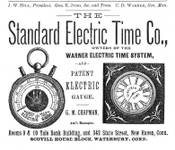
Christianity, the Advertising Ban

São Paulo is the largest city in Brazil with well over ten million inhabitants. In early 2007, the municipal government decided to ban all forms of public advertising under what is called the “Clean City” law. This ban included all sorts of advertisements, ranging from billboards and wall advertisements to the posters at bus stops and stickers on taxis. Residents were shocked as their city’s architecture emerged into full view for the first time. Because of the visual pollution, most had never seen the real skyline of their city before.
And for many, it was the first time they were able to see the slums that some districts had become. The advertisements had obscured their ability to see poverty. Ironically, the “Clean City” law revealed just how dysfunctional the city had become.
This is a very appropriate metaphor for Christians interacting with
the world. Our culture bombards us with images of the good life, of
beauty, and an idea of reality every day, and rarely do we critique
them in terms of our religious beliefs. We see advertisements, and if
we don’t like them, we simply decide not to buy the product. But we
hardly ever go the step further and question how these commercials
promote the creation of desire – the creation of an obsessive
consumerism that is more concerned with the self than others. In fact,
when we reject advertisements we, in some measure, do exactly what the
advertisers want us to do – we say “I don’t like that,” which in fact
reinforces our opinion of ourselves as consumers and autonomous,
decision-making individuals. A product is only valuable insofar as it
meets our own personal criteria for worth. When was the last time you
rejected an advertisement, perhaps for a car, on the basis that it was
promoting a keeeping-up-with-the-Joneses mentality that the Bible
rejects in favor of a redemptive community?
This happens outside advertising as well, of course. In the Cold
War, the United States often critiqued the Soviet Union for producing
false propaganda and feeding it to the Eastern Bloc. We saw Soviet
leaders lying to their people about their political processes, about
their economy, about the very nature of reality itself. But could it
be the case that the United States and our consumer society does
something eerily similar? Advertising has developed far beyond making
a consumer aware of a products existence. It now creates desire,
opening up people to the imagined possibilities of consumption, where
an individual might never have thought about purchasing that new
kitchen appliance, that new outfit, or that one addition that will
really amp up the home entertainment system into something special.
Slavoj Žižek notes the irony of a system that claims to be concerned
about our happiness, when our insatiable desire has made us generally
unhappy. (Talk with anyone who has been on a mission trip to Africa
recently and one of the first things they’ll talk about is how happy
the locals were in the face of what we would see as a vast material
shortage).
Does the American dream of personal comfort and happiness really
line up with the Christian’s hope (a hope which is grown best in
adversity)? The gospel is one of grace, not of our ability to purchase
our salvation. What do Christians do with the “pull yourself up by
your bootstraps” concept when the Bible suggests that we don’t have
boots?
In this sense, Christianity is an advertising ban. Christianity
rejects the public mythologies of consumerism that are offered up as a
way to understand reality, personal value, and human dignity. It
rejects any kind of idea that obscures the history of creation, the
fall, and redemption.
Yet Christianity does not suggest that we are to be somehow free of
desire, if that were even possible. We should be people who desire
things more passionately than anyone else, but our proper desires will
not have price tags. We long for justice and pray for peace and reject
the ideas that numb our sensitivity to pain and suffering, to poverty,
crime, and injustice. We reject them, because we see Jesus, who, being
fully aware of the world’s misery and murderous intent, descended to
earth and took on flesh for our salvation. As we grow in our
relationship to Jesus we should see this sort of incarnation, this sort
of abandoned dive into brokenness as a habit of being. Our concerns
should be both personal and social, ranging from the sin in ourselves
and relationships to corrupted institutions. Only when we
shake off the myths of the world and move closer to reality, will we
begin to see the sorts of things that God is in the habit of
accomplishing.
Daniel P.
Click below to listen to On the Media’s discussion of São Paulo and the advertising ban.